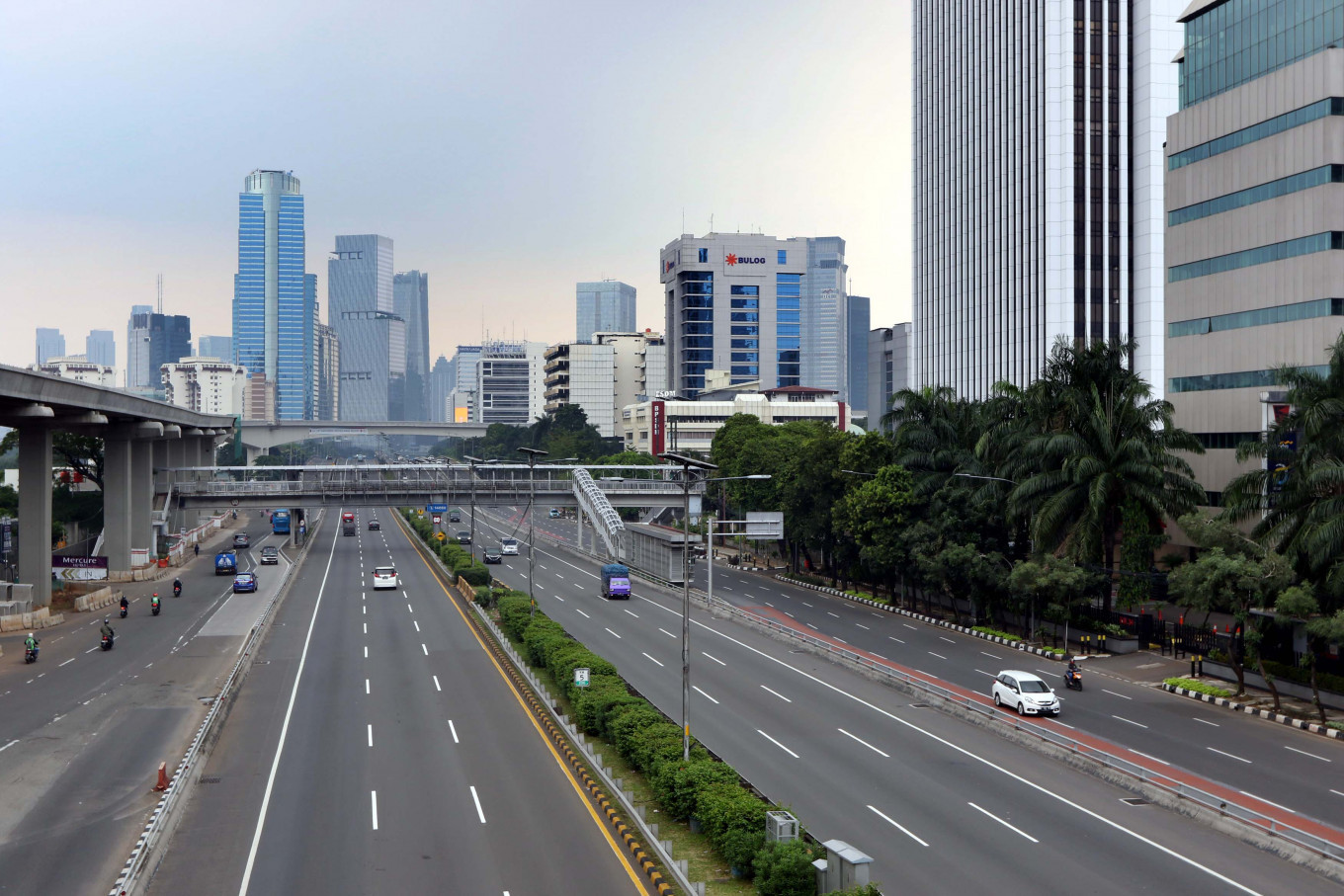Popular Reads
Top Results
Can't find what you're looking for?
View all search resultsPopular Reads
Top Results
Can't find what you're looking for?
View all search resultsWe can see the light
Indonesians are optimists and will likely spend more when they emerge out of the crisis, market surveys show.
Change text size
Gift Premium Articles
to Anyone
T
he much-anticipated local recession, which will result in millions of Indonesians falling into the poverty trap and unemployment, could last longer than projected if the COVID-19 response is not accelerated and improved from the state it is in today.
International institutions and economists at home have warned that the slow, unclear and fractured containment measures will prolong the economic meltdown resulting from the pandemic. It has taken Indonesia a few months, thousands of infections and hundreds of deaths to make progress in handling the virus.
Tougher large-scale social restrictions (PSBB) and the ban on the mudik (exodus) at Idul Fitri from red zone areas are all signs of progress. Additionally, the decision to conduct mass tests using the more reliable polymerase chain reaction (PCR) method, instead of the less reliable rapid tests, will improve the nation’s data needed to make policy decisions in its battle against COVID-19.
But slow progress is not enough in a time of crisis as great as that today. What people need from the government is proactivity, and more importantly certainty so they can feel secure. Such a state of mind is the main prerequisite for a healthy society and a thriving economy. On the contrary, uncertainties, especially surrounding COVID-19, will only lead the public, including households and businesses, into confusion, if not desperation.
We can still hear people embroiled in a debate as to whether they can use ride-hailing apps as a mode of transportation, despite the physical distancing policy. Many others have insisted on leaving Greater Jakarta for their hometowns despite the mudik ban. Some also ask whether they can cross regional borders or take flights.
Such questions linger as public policy is dogged by a lack of coherence and characterized by flip-flops. One day it is one rule and the next day another. One government official’s statement contradicts another official’s remarks.
Last week Jakarta extended its PSBB for another month while the Education and Culture Ministry hinted at a possible extension of home-learning mechanisms until the end of the year. However, on Monday the National Disaster Mitigation Agency (BNPB) announced a declining trend in virus transmission in Jakarta, Indonesia’s virus epicenter accounting for around half of all cases and deaths.
The BNPB might share good news, but it has raised more questions rather than shedding light for the people of Southeast Asia’s largest economy. Without explanation and supporting data, such information will only result in false expectations, misguided decisions and wrong actions.
What we need from the government is clarity. Communication is key, hence the way the government communicates with the public. Government officials and leaders are responsible for providing factual and comprehensive information to keep people’s hopes alive and give them confidence.
Indonesians are optimists and will likely spend more when they emerge out of the crisis, market surveys show. In other words, Indonesians see light at the end of the tunnel. When they can finally get through the ordeal will depend on the government’s guidance. The more the government upholds transparency and clarity the faster it can help the people overcome this crisis.










